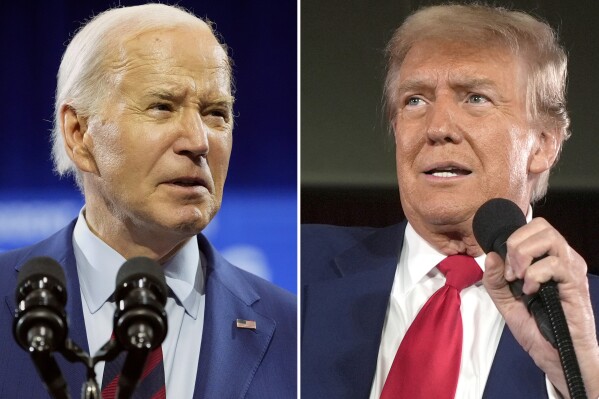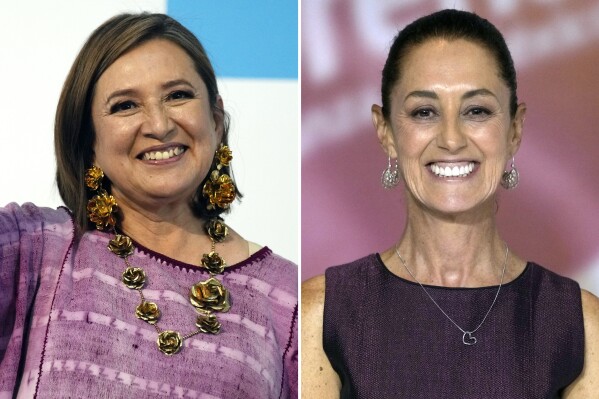The Commission on Presidential Debates faces an uncertain future after Biden and Trump bypassed it
PHOENIX (AP) — The nonpartisan Commission on Presidential Debates, which has planned presidential faceoffs in every election since 1988, has an uncertain future after President Joe Biden and former President Donald Trump struck an agreement to meet on their own.
The Biden and Trump campaigns announced a deal Wednesday to meet for debates in June on CNN and September on ABC. Just a day earlier, Frank Fahrenkopf, chair of the Commission on Presidential Debates, had sounded optimistic that the candidates would eventually come around to accepting the commission’s debates.
“There’s no way you can force anyone to debate,” Fahrenkopf said in a virtual meeting of supporters of No Labels, which has continued as an advocacy group after it abandoned plans for a third-party presidential ticket. But he noted candidates have repeatedly toyed with skipping debates or finding alternatives before eventually showing up, though one was canceled in 2020 when Trump refused to appear virtually after he contracted COVID-19.
In reaching an agreement on their own, Biden and Trump sidelined a commission that aims to set neutral rules and provide a forum that’s simultaneously broadcast on all major networks.



The commission suggested in a statement Wednesday that it would not immediately let go of its plans.
What to know about the 2024 Election
- Democracy: American democracy has overcome big stress tests since 2020. More challenges lie ahead in 2024.
- AP’s Role: The Associated Press is the most trusted source of information on election night, with a history of accuracy dating to 1848. Learn more.
- Read the latest: Follow AP’s complete coverage of this year’s election.
The commission was “established in 1987 specifically to ensure that such debates reliably take place and reach the widest television, radio and streaming audience,” the statement said. “Our 2024 sites, all locations of higher learning, are prepared to host debates on dates chosen to accommodate early voters. We will continue to be ready to execute this plan.”
Representatives for the commission did not respond to requests for further comment.
The Biden and Trump campaigns had both been critical of the commission’s plans, including the dates it set in September and October, after voters in many states will have already started casting ballots by mail.
Fahrenkopf on Tuesday said he had not spoken to representatives for either Biden or Trump. All the while, the campaigns had closed in on their own agreements. But he defended the importance of television debates in general.
“You learn a lot about the personality of the candidate,” Fahrenkopf said. “Not only where they stand on the issues but how they conduct themselves and how you feel about how they conduct themselves.”
Disclaimer: The copyright of this article belongs to the original author. Reposting this article is solely for the purpose of information dissemination and does not constitute any investment advice. If there is any infringement, please contact us immediately. We will make corrections or deletions as necessary. Thank you.




